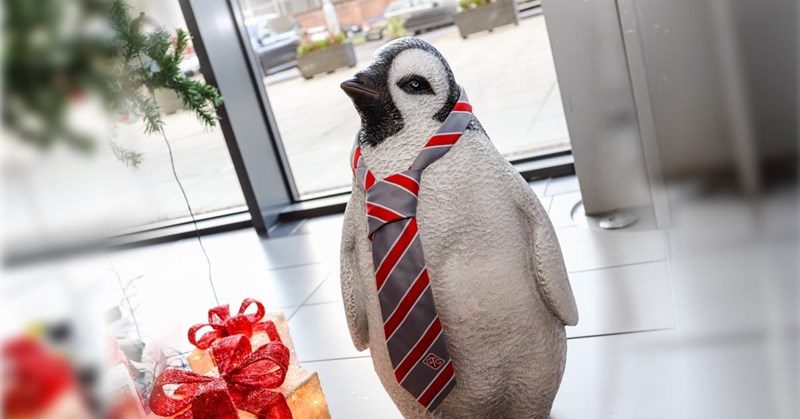'Tis the season to be smart about health and safety. Here’s our guide to help you stay safe at work, at home or on the move.

If you’re visiting GTG Glasgow in December, you’ll notice we’re already in the spirit of the season with an enormous Christmas tree in our reception area, watched over by our resident GTG penguin and our Christmas-themed Oor Wullie statue sporting a braw Christmas jumper.
While the festive season is a big holiday in the calendar, it’s also as good a time of year as any to practice good health and safety habits!
Health and safety isn’t about stopping employees having fun; the Health and Safety Executive (HSE) has debunked a dozen health and safety myths, showing how important its role is in the modern-day workplace.
So with seasonal safety in mind, here are some top tips ‘yule’ want to remember for keeping your home and workplace safe, or for when you’re out dashing through the snow.
Lights
Make sure that any festive lights you’re putting up are in good condition before you use them, remembering to check parts like the socket and wiring. Don’t overload extension leads, and never ‘daisy-chain’ leads (plugging one lead into another to create an extension).
If you’re installing Christmas lights outdoors, never use indoor extension leads outside as they’re not insulated enough to deal with moisture or temperature changes.
Prevent obstructions
When putting up any decorations at home, in the office or around the workshop, make sure fixtures like trees, hard-plastic reindeer or life-sized Santas are not blocking any fire exit doors, alarms, or obstructing access to firefighting equipment like extinguishers or blankets.
Check the weather
The festive period can mean long drives to visit family and friends, or for many, a commute to work in between Christmas and New Year, so be prepared for unexpected wintry weather. Give yourself breathing space to complete your journey in time, in case road conditions are poor, and freezing temperatures mean an extra few minutes firing up the heaters and scraping your windscreens and headlights.
Just as in good road conditions, icy or snowy roads make it riskier to drive faster, reducing your margin for error on the road, and increasing your braking distance, so always comply with local and national speed limits.
Salt or grit paths
If you’re first at work and the snow is lying deep and crisp and even, it’s important to ensure your walkways are gritted or salted in areas where a lot of employees and visitors will be walking, both in and out of your building, to prevent slips, trips and falls in icy conditions. You might not be the designated person for the job but going above and beyond to ensure gritting and salting is carried out in the morning will help keep walkways safer for everyone.
Gritting and salting should be carried out regularly throughout the day, because one dose of rock salt per day won’t generally be enough to keep paths ice-free. It’s also a good idea to make sure you have doormats at entrances to your building, to prevent puddles from building up inside.
If your workplace needs health and safety support, GTG can help.
For more information, check out our health and safety advisory service.